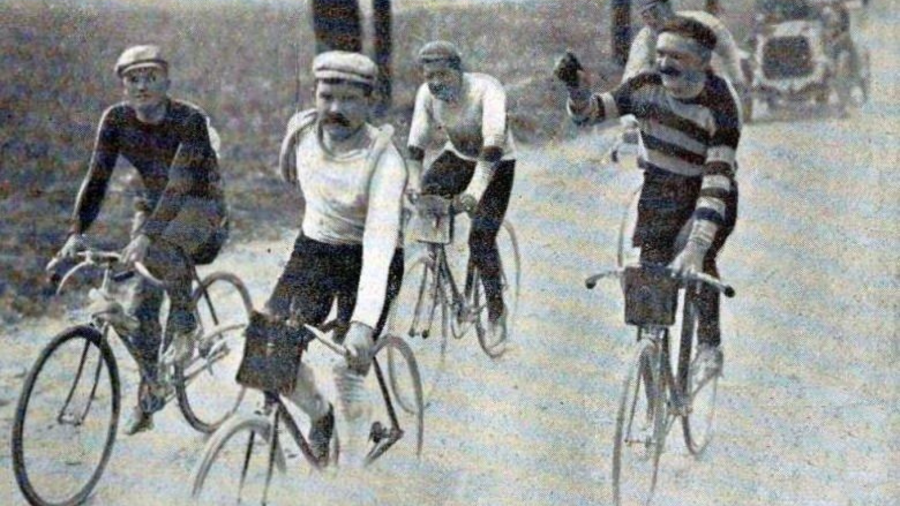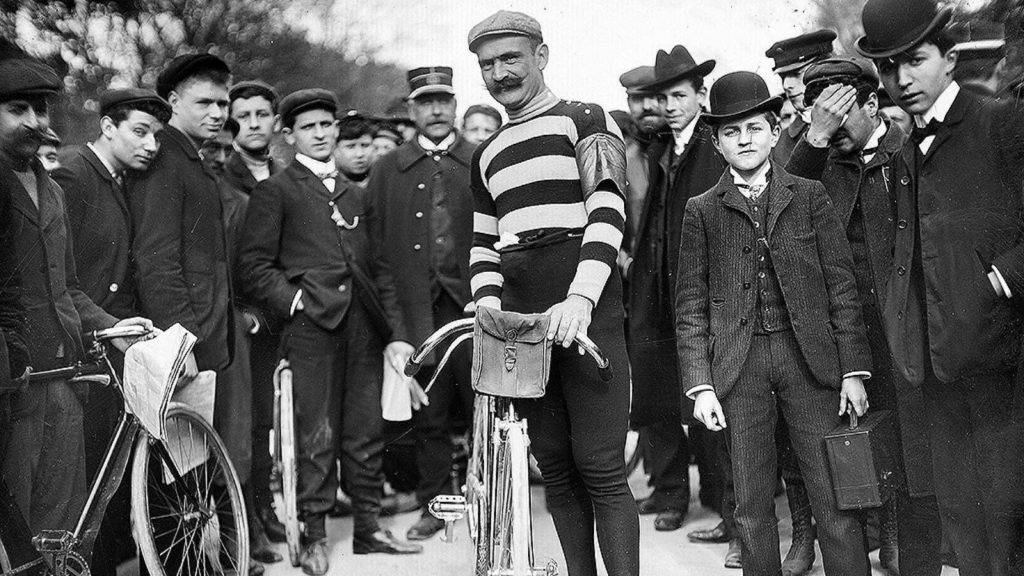The image of a French cyclist in a striped shirt may feel like a cliché, but sometimes stereotypes hold a surprising amount of truth.
Consider Hippolyte Aucouturier—one of the most iconic figures of early road cycling. Recognizable for his distinctive outfit, Aucouturier also found considerable success during his career, active from 1900 to 1908 as an independent rider.

He claimed victory at the 1903 Paris-Roubaix under rather chaotic circumstances: traditionally, riders switched bikes upon entering the velodrome, but when Aucouturier arrived alongside Claude Chaperon, Chaperon mistakenly grabbed Louis Trousselier's bike. By the time he realized and corrected his mistake, Aucouturier had surged ahead, winning the race.

Following this victory, Aucouturier was one of the favorites for the inaugural Tour de France. He abandoned the first stage due to stomach pains, but rules allowed him to continue competing for stage wins. He did just that, taking the next two stages before withdrawing on the fourth day.
In 1904, Aucouturier was involved in acheating scandalat the Tour, resulting in disqualification. However, he returned the following year, winning three stages and ultimately finishing second in the general classification—his best Tour result. He repeated this success in the subsequent year, cementing his place in the history of early competitive cycling.